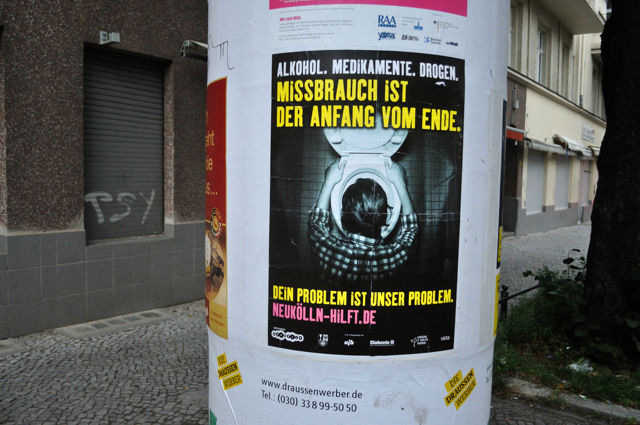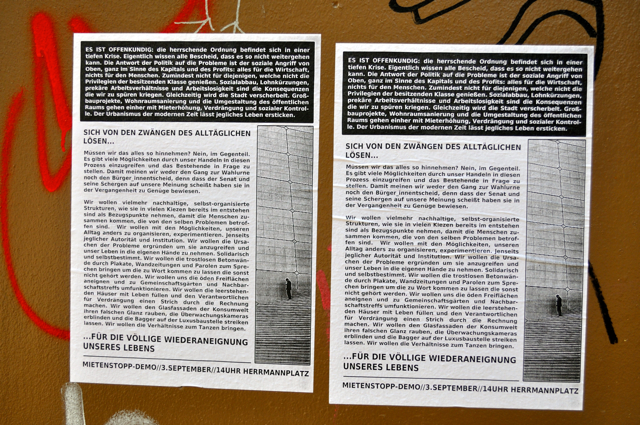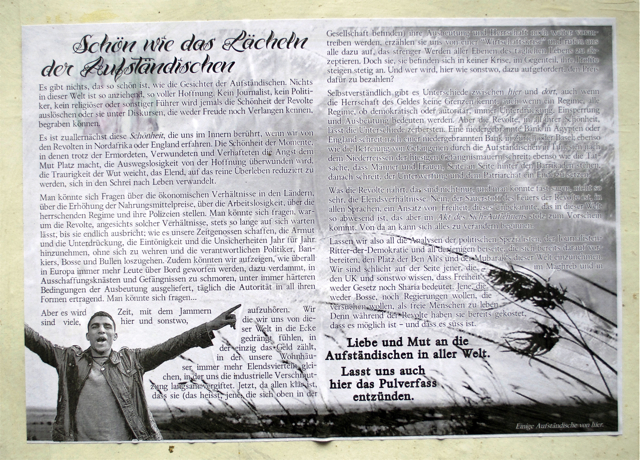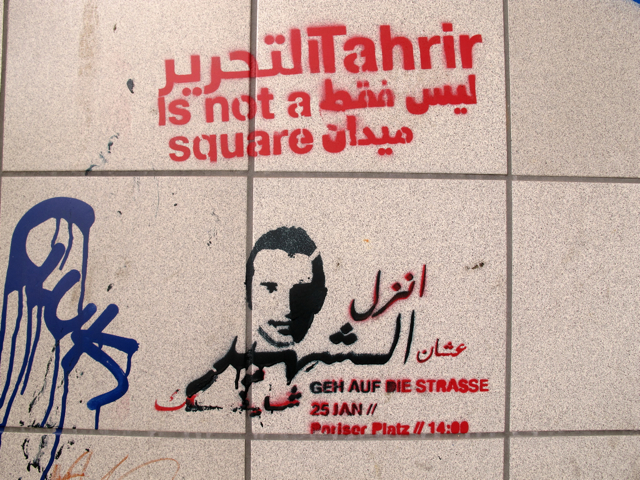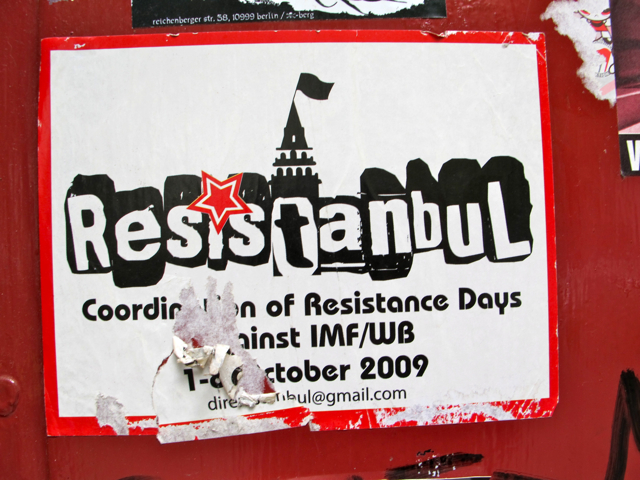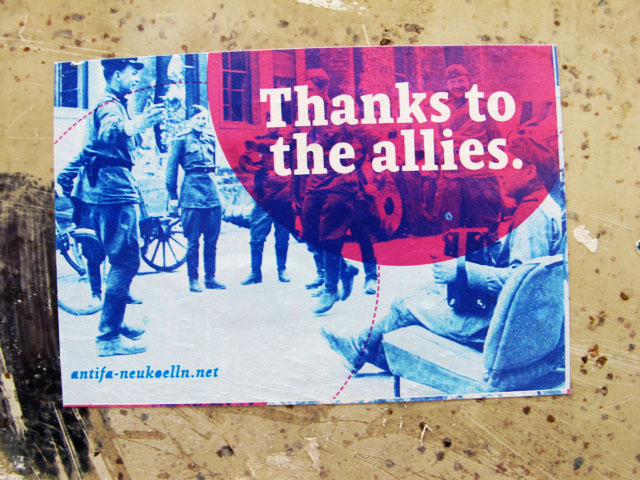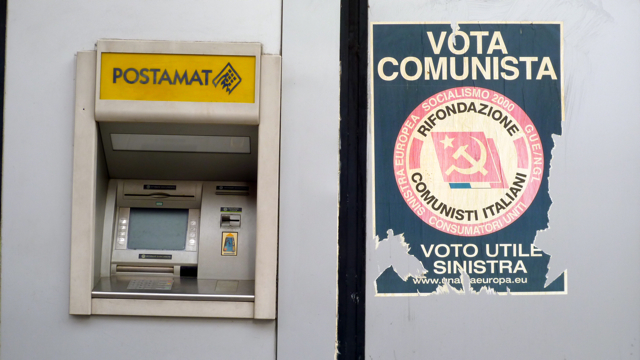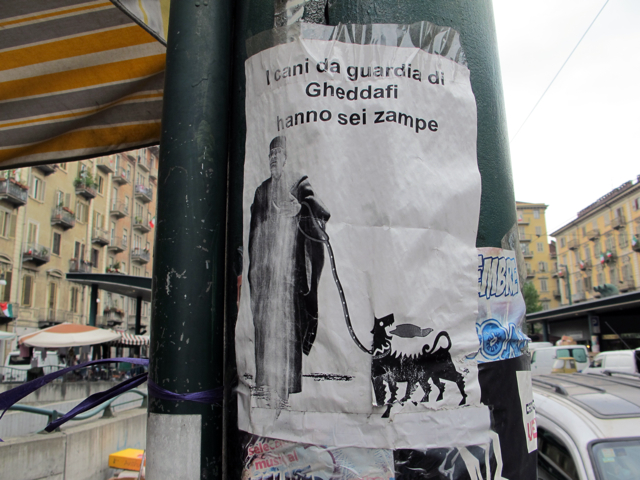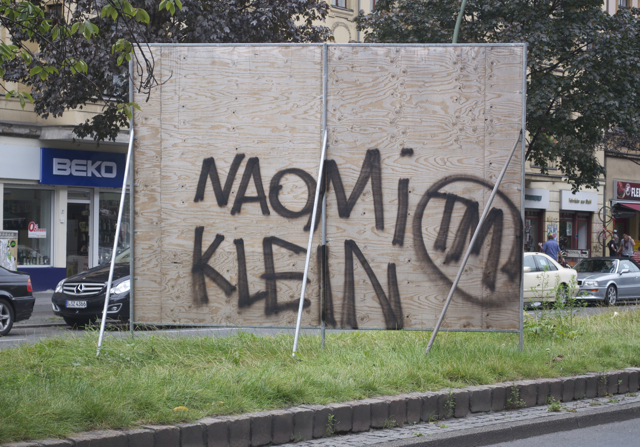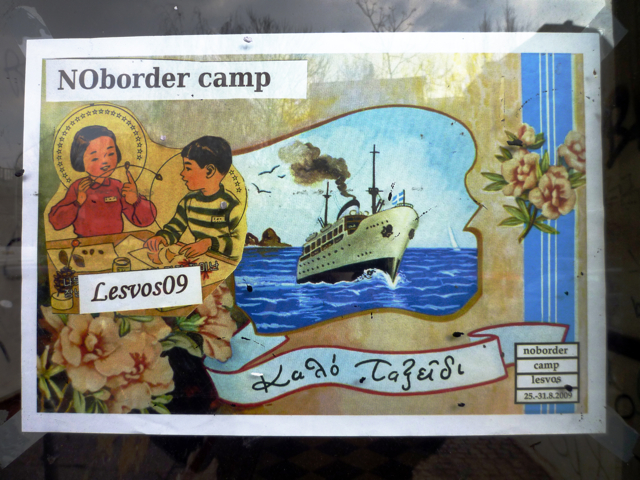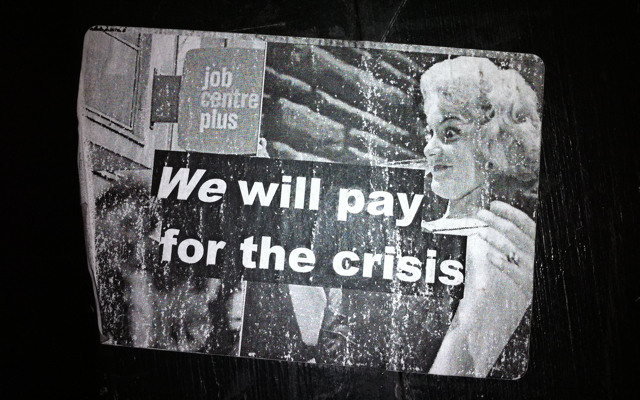Few European cities are as synonymous with drugs as Berlin. Second only to Amsterdam, in terms of Dionysian reputation, the German capitol tends to take on a more sinister hue due to its hipster association with heroin. Think back, for instance, to such rep theatre classics as Christiane F., Uli Edel’s 1981 film about a young girl, living in Neukölln, who goes from soft to hard drug use, and eventually, prostitution, all by the age of fourteen. (More…)
Author: RandomizerMost progressive periodicals emphasize words over images. Not Souciant. Randomizer is a column devoted to our love for political visuals. Collectively-authored by Souciant’s editorial staff, wherever they are. Including the kitchen.
Most progressive periodicals emphasize words over images. Not Souciant. Randomizer is a column devoted to our love for political visuals. Collectively-authored by Souciant’s editorial staff, wherever they are. Including the kitchen.
It is obvious: the ruling order finds itself in a deep crisis. Everyone actually knows full well that it can’t go on this way. The political answer to the problem is the attack on society from above, fully in the sense of capital and profit: everything for the economy, nothing for people. (More…)
If you’re a conspiracy theorist, the green probably means Islam. Featuring cartoon depictions of all manner of neighborhood resident, the fact that they are all wearing the same color can only mean one thing. Promote diversity, and everybody crosses over to the other side. The panhandling punk kids, with the red mohawks, included. (More…)
There is nothing so beautiful as the faces of insurgents. Nothing in this world is so attractive, so full of hope. No journalist, no politician, no religious leader or other sort of leader will ever be able to extinguish the beauty of the revolt or bury it under discourses that know nothing of joy or longing. (More…)
“Walk like an Egyptian.” “Trafalgar square = Tahrir Square.” Comparisons to the uprising then-underway in Egypt were aplenty at London’s anti-cuts protest in March 2011. No surprise there. For the first time since 1989, revolutionary fervor was crossing national boundaries, challenging authoritarianism in the name of democracy. (More…)
Istanbul is not the first place we associate with revolution. Paris, 1968, maybe, or east Berlin, circa 1989. Given Turkey’s continued economic growth and strategic importance, it was inevitable that it would become a site of international leftist activity, not just that of domestic political organizations. (More…)
Double takes are quite common. Especially for first time visitors from the United States, who know little about German politics. Appearing like clockwork, just before annual commemorations of the end of World War II, such anti-fascist stickers harken back to a time when radicals were grateful for being liberated by the Americans. (More…)
The art direction is fabulous. Is there anything less apropos than a sickle and hammer next to a machine that spits out Euros? As obvious as it seems, such messaging is not that common. Not even in countries like Italy, where anti-capitalist parties still play a role in national politics. Milan, February 2010. (More…)
Cynicism is warranted. If Italy could serve as a staging base for NATO attacks against one of the largest investors in its economy, why wouldn’t Nicolas Sarkozy participate in the operation? Hence the note of sarcasm in this badly copied anti-Libyan War flyer, found on Via Madama Cristina, in Turin. (More…)
If you think you’re in New York, no one will disagree with you. So heavily overladen with graffiti, at times, Berlin resembles an American city in the mid-1980s. The fact that internationals are heavily responsible for the art (including a heavy dose of New Yorkers) does little to dissuade such comparisons. However, push a little deeper into the German capitol, and you’ll begin to notice some serious differences. (More…)
It’s been like a dream come true. Since the signing of the Amsterdam Treaty in 1997, 400 million citizens of Schengen-area states have been able to travel largely ID-free, inside the area’s borders. Though subject to periodic controls (such as those imposed in 2011 by France and Denmark) their elimination has also been a boon to refugees, who frequently have to travel to several countries before being granted asylum. (More…)
Don’t let the gallery shows fool you. Unlike other European cities, London is noteworthy for how little political art is produced there. This isn’t to say that it’s not home to some of the world’s more influential practitioners. There’s just not as many as the street art and graffiti would suggest. (More…)
